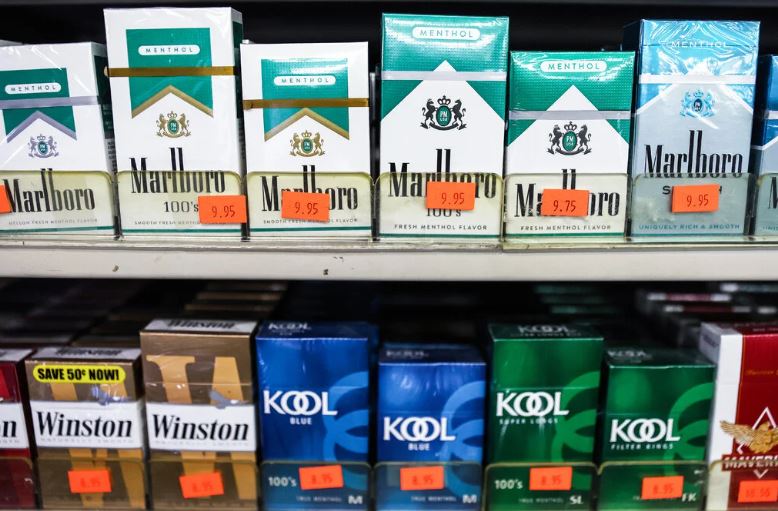The Biden administration has postponed a decision on whether to ban menthol cigarettes, citing concerns about potential job losses and aggressive police tactics. The proposal to eliminate menthol cigarettes was formally introduced by the Food and Drug Administration (FDA) last year, with the aim of addressing health disparities, particularly among Black smokers who show a preference for menthol brands.
The delay in the decision comes as a result of intensive lobbying efforts by tobacco companies, convenience stores, and industry-backed groups, who argue that billions of dollars in sales and jobs are at stake. The FDA proposal aims to reduce health risks, especially among Black men who face higher rates of smoking-related lung cancer and death. Approximately 85% of Black smokers prefer menthol brands, according to statistics.
In recent months, various groups, both supporting and opposing the ban, have met with administration officials to discuss the proposal. Notably, tobacco companies and convenience store groups, opposing the ban, have joined forces with the National Action Network, founded by Rev. Al Sharpton, to raise concerns about potential racial targeting by the police. The policing argument has been disputed by many Black organizations, including the majority of the Congressional Black Caucus, who view it as an attempt to distract from the harms of cigarettes.
Patrice Willoughby, Vice President of Policy and Legislative Affairs at the N.A.A.C.P., stated, “What we’re seeing now is the reaction of a very well-organized industry that has been peddling death to the Black community.”
The FDA has expressed its commitment to finalizing the proposal this year, emphasizing its role in President Biden’s Cancer Moonshot initiative. The proposed menthol ban is considered a crucial component of efforts to reduce smoking-related cancer deaths, with estimates suggesting it could prevent up to 650,000 deaths.
However, the delay has raised concerns about the administration’s commitment to public health goals. Public health groups have urged officials to act promptly, emphasizing the potential for each day of delay to contribute to new tobacco users. The Washington Post previously reported the Biden administration’s decision to postpone any action on the proposal until the spring.
Senator Richard J. Durbin addressed rumors of political motivations for the delay, dismissing concerns that Black voters would oppose the president in the next election because of the ban. He emphasized that such concerns were “greatly exaggerated” and clarified that the ban would be enforced at the manufacturers’ level, not against individuals.
The politics surrounding the menthol cigarette ban present a delicate balance for President Biden. While he campaigned on a promise to “follow the science,” he must navigate the potential perception of condescension toward Black voters, a key Democratic constituency. The delay raises questions about whether the administration is bowing to political pressure.
The financial stakes for major U.S. tobacco companies in the menthol cigarette market are significant, accounting for over one-third of all U.S. cigarette sales. Reynolds American, the maker of the top-selling Newport brand, sees approximately $7 billion in menthol cigarette sales annually. Both Altria and Reynolds have pledged to fight the ban, with Reynolds vowing to take the battle to the Supreme Court, potentially delaying the implementation of a final prohibition rule for years.
The administration’s decision to delay has sparked criticism from public health advocates, who argue that each day of delay allows Big Tobacco to attract new users. The ban enjoys public support, with around 60% of Americans favoring the prohibition of menthol cigarettes.
Tobacco companies have faced longstanding criticism for targeting Black communities, and studies have documented industry marketing strategies for menthol cigarettes in Black-centric publications and neighborhoods.
Lobbying efforts against the ban have been intense, with tobacco companies donating millions to Republican-controlled super PACs and lobbying in Congress. Some Republican lawmakers, including Senator Marco Rubio, have opposed the ban, expressing concerns about potential illegal markets and criminal activity.
Despite the opposition, public health groups continue to advocate for the ban, emphasizing its potential to save lives and reduce smoking-related diseases. The final decision, expected by March, will be a pivotal moment in the ongoing debate over menthol cigarettes and their impact on public health, racial disparities, and the tobacco industry.

